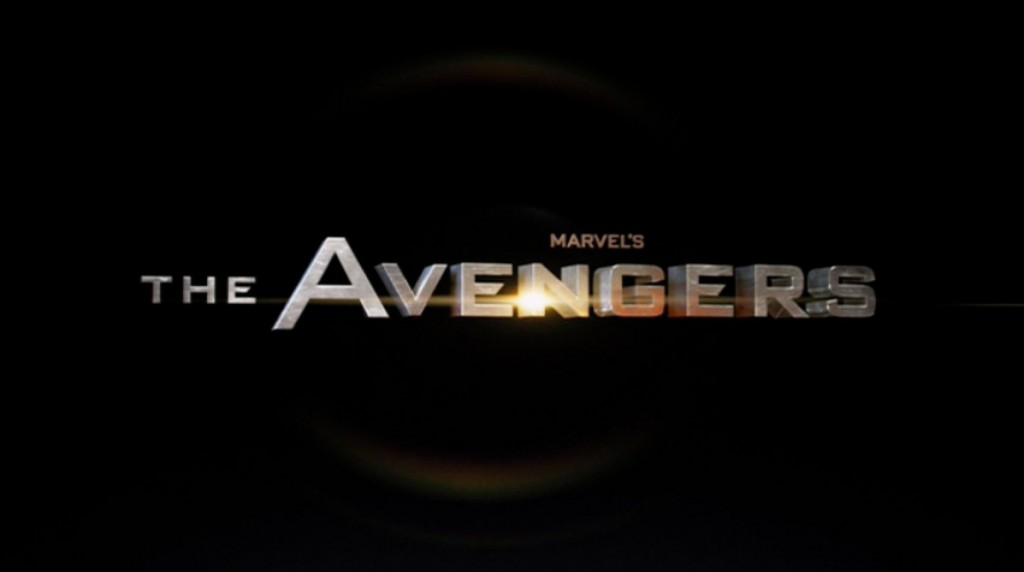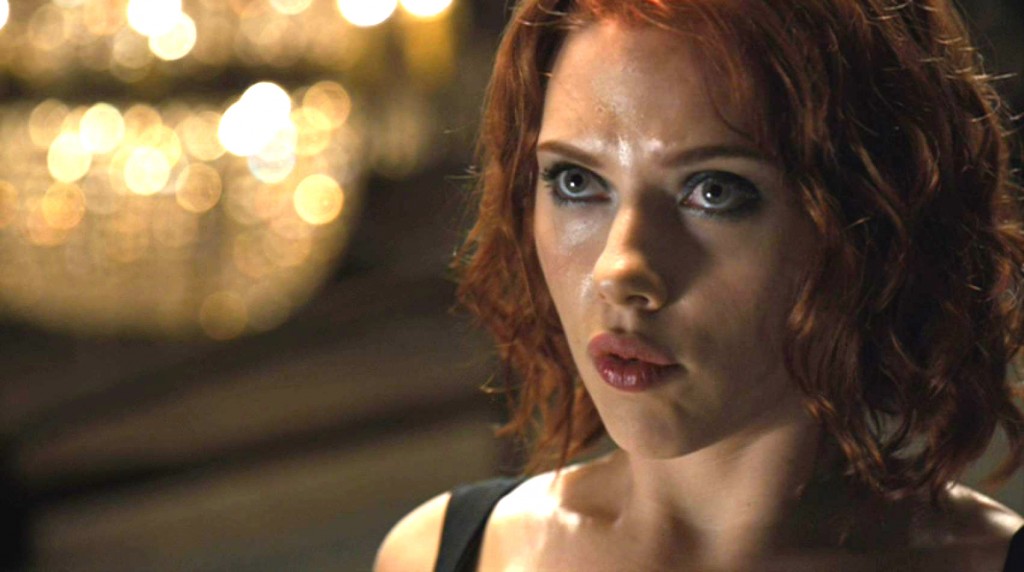The Avengers part 4
Now that our movie has a protagonist, the question, as always, is “What does the protagonist want?” Superficially, the protagonist of The Avengers, Nick Fury, wants “to save the world,” that most generic of motives. To save the world, Fury must get a group of superheroes from vastly different backgrounds to work together.
Surprise! What the protagonist wants is exactly the same thing as what the writer-director wants! If Joss Whedon cannot succeed in getting his dog’s-breakfast of a cast to mesh, meld and work as a unit, his narrative will fail and no one will go see his movie. This not only gives the writer a keen insight into his protagonist’s character, it’s a stroke of genius, giving the narrative a spine that would otherwise make it an ensemble comedy-spectacle, an It’s a Mad, Mad, Mad, Mad World with superheroes.
We now move briefly to Russia, where we meet Black Widow. This is the first of what will be a number of “assembling the team” scenes, which will form the basis of Act I. “Assembling the team” acts can be a real drag, a laundry list of scenes that don’t further the action, especially when the audience knows that the team will assemble. “Avengers Assemble!” is the freaking catchphrase of the whole franchise, how could they not assemble? The screenplay gets around this potential narrative cul-de-sac in a number of ways, starting with the excellence of the individual scenes.
Black Widow is Somewhere in Russia, in a black evening dress, being interrogated by Some Bad Guys. Who is Black Widow? I don’t really know, I’m only glancingly familiar with her, but her introduction in The Avengers certainly gets my attention. It’s a brilliant scene, one that tells you everything you need to know about the character and delivers that information in a concise, funny, inventive and dramatically effective way.
We meet her tied to a chair, teetering on the edge of a big hole in the floor. Our hearts instantly go out to her: that poor woman! She’s being interrogated by some really scary dudes about something or other, it really doesn’t matter, it makes no difference, the point is that she is in a position of extreme duress and discomfort and facing impossible odds for escape.
Except, of course, that she is not. One of the thugs gets a phone call from Agent Coulson, who has (or says he has) a bomber ready to kill them all. (This elevates Coulson quite a bit in the narrative, from “Guy Subservient To Nick Fury” to “Guy Impressive In His Own Right.”) And we learn that Black Widow’s helplessness is an act, that she has been using her helplessness to get the Russians to reveal more information than they would have otherwise, and that she is perfectly capable of taking care of herself, reversing her situation and making the Russians the helpless ones, in a hugely impressive fight scene.
She’s reluctant at first — she tells Coulson “I’m working.” So we see how she responds to a guy capable of destroying a city block with a phone call — “Can this wait?” Coulson tells her “Agent Barton has been compromised,” and that’s sets her into action. So we see that Black Widow is not motivated by “duty to her superiors” but rather by personal friendship: Hawkeye means something to her. This makes all the difference in the world.
A few years back, I did a piece about the difference between Bruce Timm’s Justice League series and the Superfriends show of the 1970s. I found that the difference between the two shows is that Superfriends treats the Justice League as all the same protagonist, while Justice League emphasizes the differences between all the characters and mines dramatic gold from those differences. The same applies here: a simple line like “Agent Barton has been compromised” changes The Avengers from a movie about a fait accompli triumph of team spirit to a movie about people, and superheroes need to be people, no matter how broadly drawn, if we’re going to care about them.
(I love the shot of Coulson waiting on the phone while Black Widow turns the tables on her captors. Listening to Black Widow beat up thugs is Coulson’s version of hold music.)


The more I think about it, the more I see how this movie excels at demonstrating critical points in half a second flat. As you said in a previous post, Coulson standing still while everybody else is evacuating establishes, without dialogue or even doing anything more than the usual scene-setting shots, that he’s both cool and important. Here, “I’m working” tells us volumes about Black Widow, as does her reaction to the otherwise expository line, “Agent Barton has been compromised” — both of those being moments that another film might take three times as long to work through.
And this has me thinking about “naturalist” ideals of dialogue, where characters are supposed to talk like ordinary people. I’m almost never a fan of that sort of thing except in small doses, because narratively speaking, real people’s speech is bloated and inefficient. Replace the dialogue in The Avengers with real-people-talk, and not only does the movie lose 90% of its humour, it also becomes nine hours long. This film requires highly condensed speech to function.
But it also requires a degree of trust in the audience: that they’re paying attention, and are smart enough to figure out what you’re not saying. We don’t get any speech from Black Widow about how important Hawkeye is to the team, or what Clint Barton means to her, personally. The viewer has to infer that from her volte-face, “I’m working” to “I’ll have to put you on hold.” As examples go, that one isn’t particularly hard to parse, but I think it’s something Whedon does a lot of in this film. Which, given how often this genre gets cricitized for being “big and dumb,” is noteworthy.
The weird thing about the concision of that dialogue is that the previous minute of the scene is taken up with a bunch of blather that doesn’t mean anything, as the Russians talk about something important only to the people in the room. That’s not to say that the dialogue isn’t important, just that it takes lines and lines talking about nothing that advances the plot at all. Same thing in the previous scene, all the blather about what the Tesseract is and how it’s “misbehaving,” it’s nonsense and the writer knows it’s nonsense, but certain words get repeated so that we understand who’s who, what’s what and what it means to the people in the room.
Hmmm. I would say the blathering does mean a few things, though obviously not as much as the key dialogue points do. It sets up the assumption that Natasha is in peril — that she tried to do something clever and got captured, which creates one image of her as a character (an image reinforced by her dress and the position her captors have her in). We need that for the subsequent reversal to have its full effect, and to establish the motif that she’s very good at using the appearance of vulnerability to lure her opponents into being stupid. (It’s Chekhov’s gun for the later conversation with Loki.) It also gives us a scale for Natasha: the universe is at stake, but her usual job involves arms dealers, not alien gods. She is not in the same league as Thor or Iron Man or Cap or Hulk, so we’re more impressed when she puts herself up against their scale of problems.
We do still spend a surprisingly long time on the build-up, but I think the balance works out pretty well.
Like you say, the blathering serves a character point, but not a plot point. We don’t need to know who exactly the Russians are, or who Lebertov is, or what guns were sold where, we just need to know that Black Widow is in trouble, and, later, that “getting in trouble” is how she gets information out of men who think they are powerful.
And yes, the Chekhov’s Gun scene with Loki is the payoff, and what’s great about the scene is that it’s such a deliberate homage to the end-of-Act II scene in Silence of the Lambs, so when Black Widow reverses it, again, it’s like she’s not just saving the world, she’s saving Clarice Starling as well.
True, the specific topic of the scene is not relevant in a plot-bearing way, any more than Banner’s work as a doctor in India is, or Steve’s . . . right, the point there is that Steve isn’t doing anything. Apart from the Tesseract introduction, I think the only remotely plot-bearing character intro is Tony’s, and even then it’s a minor note introduced in passing: his energy-related work later gets referenced by Loki, and spurs some of the shenanigans on board the Helicarrier.
Avengers Assemble wasn’t just the tag line, in the UK it was the official title.
Apparently someone was worried we might get it confused with the TV series of the same name from the 60s. (Which was bloody brilliant by the way, especially the 4th and 5th series with Diana Rigg)
Or worse, confuse it with the dreadful 1997 movie version of the brilliant 60s TV series.
“I found that the difference between the two shows is that Superfriends treats the Justice League as all the same protagonist, while Justice League emphasizes the differences between all the characters and mines dramatic gold from those differences.”
Weirdly enough, that’s almost exactly what differentiates the modern TV iteration of My Little Pony from its 80s predecessor.
(I’m Stormwyvern/InkAndPixelClub, with yet another new alias.)
Unfortunately for me (in this case) I know Russian, so this scene is my least favorite in the entire movie. I can’t think about anything else when I watch it except how absolutely awfully pronounced the Russian is. The best thing about getting the DVD was being able to skip it. I mean, really, truly awful. I don’t think I’ve ever heard worse. Once I heard equivalently bad, but the actress (playing X-Files’s Marita Covarubius) delivered it with such gusto that it worked regardless — she “acted” as though she knew the language and delivered it quickly and commandingly, so it “sounded” good even though it was pronounced terribly. Here it’s literally painful for me to watch. And the location-establishing exterior shot with a Russian sign? Random Russian letters thrown together in a completely impossible, unpronounceable sequence. Embarrassing for a movie with this budget. (Compare Iron Man 2 where an establishing shot has a sign in Russian that translates to “Groceries” — generic, but, it’s real, actual, logical Russian.) A college student with one semester of Russian could have given them an actual word to put on a sign. Or any of hundreds of online translation sites… Of course it’s less painful once they switch to English, but the whole thing has already made me ill by that point. Actually this analysis of the scene is by far my favorite thing about the scene!